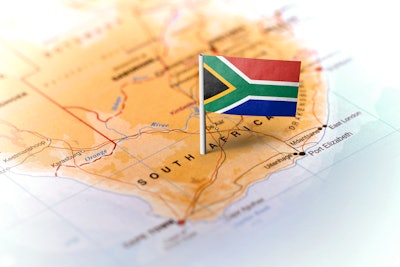
Following heavy losses from highly pathogenic avian influenza (HPAI) over the second half of last year, South Africa’s poultry sector is preparing to resist a repeat of the mortalities and folded businesses in the coming months. There is pressure on authorities to allow poultry vaccination. For poultry company Quantum Foods, HPAI significantly impacted its financial results for the last half-year.
As winter approaches, the poultry sector in South Africa has renewed concerns about the threat of HPAI. In particular, farmers are facing uncertainty over the option for vaccination, according to the South African Poultry Association (SAPA) in its latest edition of Poultry Bulletin.
Over the previous season, 10 million of the nation’s poultry were lost to the disease, according to SAPA, and many small farmers lost their livelihoods.
In the publication, a veterinarian states that, although no new HPAI infections have been recorded since January, some producers may be reluctant to report suspicious cases out of fear of having all their birds culled.
South Africa’s poultry farmers were hit by HPAI of two variants — H5N1 and H7N6 — during the last season.
Three vaccines against H5 virus serotypes have been approved by the national authority, but no authorization has been granted to either of the H7 vaccines. Furthermore, discussions over the simplification of vaccination protocols with the agriculture department (DALRR) have not reached conclusion, and no farm has yet received approval to vaccinate.
According to SAPA, not even the largest poultry companies are able to meet the biosecurity levels required for vaccination to be approved under current rules. Furthermore, it may now be too late to vaccinate the nation’s poultry flocks before the peak risk of infection.
Update on HPAI situation in South Africa
Although there were earlier outbreaks related to the virus, the current disease wave linked to the H5N1 virus serotype began in April of last year. Since then, 29 outbreaks have been confirmed in the country, according to the latest official notification to the World Organisation for Animal Health (WOAH).
Since the H7N6 virus variant was detected in the country for the first time in May of 2023, 114 premises have been affected by outbreaks.
In total, over 13 million birds have been directly impacted by the two HPAI virus serotypes — including poultry and commercial ostriches in large and small flocks across almost all provinces.
As recently as the end of April, cases of H5 HPAI in South African wild birds have been reported to WOAH.
SAPA reports that the University of Pretoria is awaiting official approval to carry out research into the H7N6 virus variant, which it describes as “the uniquely South African virus strain that decimated the national flock last year.”
HPAI impacts Quantum Foods’ half-year results
The ongoing HPAI situation in South Africa was the first operational factor mentioned by poultry company Quantum Foods in its financial report for the first half of current financial year. Published late last month, it covers the six months to March 31, 2024.
While the impacts of the disease on its business were less than in the comparable period, further outbreaks were confirmed over the latest six months. Among those hit were its own layer farms in northern provinces.
Having positive effects on fiscal performance were lower feed prices, fewer power supply issues (“load-shedding”), and higher egg prices as a result of the depleted national hen flock.
At 3.01 billion rand (ZAR; US$160 million), Quantum Foods’ revenue for the six months was down 13% year-on-year. However, operating profit improved from ZAR15 million for the period in 2023 to ZAR62 million for the year just ended.
As a result of an HPAI outbreak its broiler farming operation during the fourth quarter of last year, the company reports that the facility remained closed during the reporting period. In order to maintain supplies of hatching eggs to its customers, the company had to seek alternative sources — including imports — which increased costs for this business sector.
With annual slaughtering of 46 million birds, Quantum Foods is easily among the 10 leading poultry producers in Africa, according to the WATT Poultry Top Poultry Companies survey.
View our continuing coverage of the global avian influenza situation.


















